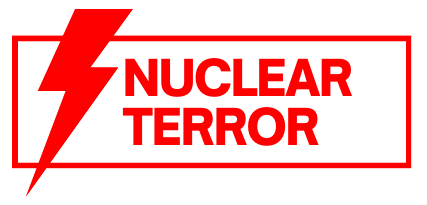Have you ever wondered about the three countries that have chosen not to join the Treaty on the Non-Proliferation of Nuclear Weapons (NPT)? It’s an intriguing statistic, considering that the NPT has been signed by 191 parties worldwide. In this article, we will explore the reasons behind India, Israel, and Pakistan’s decision to refrain from becoming signatories to the NPT. By understanding the motivations behind their stance, we can gain valuable insights into the complex dynamics of global nuclear politics and the implications it has on efforts to achieve a world free of nuclear weapons. So, let’s uncover the reasons these three countries have refused to join the NPT and how it affects the broader landscape of peace and security.
North Korea’s Denunciation of NPT
North Korea’s denunciation of the NPT in March 1993 raised concerns about its commitment to the treaty’s objectives of preventing the spread of nuclear weapons and maintaining global peace and security. The withdrawal of North Korea from the NPT signaled its nuclear ambitions and its intention to pursue a nuclear weapons program. This move was met with a strong international response, as the international community recognized the threat that North Korea’s nuclear program posed to regional and global security.
The non-compliance consequences of North Korea’s withdrawal from the NPT were significant. The United Nations Security Council imposed sanctions on North Korea, aiming to pressure the country to abandon its nuclear ambitions and return to compliance with the treaty. However, these measures have proven to be challenging to enforce due to the verification challenges associated with North Korea’s secretive and isolated nature.
The international community has been actively engaged in efforts to address North Korea’s non-compliance and prevent the further proliferation of nuclear weapons. Diplomatic negotiations have been ongoing to find a peaceful resolution to the issue, but progress has been slow. The verification challenges faced in monitoring North Korea’s nuclear activities remain a significant obstacle in ensuring compliance with the NPT.
Iran’s Position on NPT
Iran’s stance on the NPT has been a subject of concern and scrutiny due to its nuclear activities and the international community’s suspicions about its compliance with the treaty. The following points shed light on Iran’s position:
- Nuclear Ambitions: Iran’s nuclear program has raised concerns about its intentions and the possibility of developing nuclear weapons.
- International Obligations: As a signatory to the NPT, Iran has international obligations to ensure the peaceful use of nuclear energy and to refrain from acquiring nuclear weapons.
- Nonproliferation Efforts: The international community has called on Iran to demonstrate transparency and cooperate fully with the International Atomic Energy Agency (IAEA) to address concerns about its nuclear program.
- Diplomatic Negotiations: Diplomatic efforts, such as the Joint Comprehensive Plan of Action (JCPOA), have been made to address Iran’s nuclear program and ensure its compliance with the NPT.
- Safeguards Implementation: Iran’s adherence to IAEA safeguards is crucial to provide assurance that its nuclear activities are solely for peaceful purposes.
While progress has been made through diplomatic negotiations, ongoing concerns remain regarding Iran’s compliance with its NPT obligations. It is essential for Iran to continue to cooperate with the international community and fully implement safeguards to address these concerns and ensure the peaceful nature of its nuclear program.
Iraq’s Stance on NPT
The discussion now turns to the stance of Iraq on the NPT, shedding light on its position regarding nuclear non-proliferation and the obligations set forth by the treaty. Iraq’s nuclear program has been a subject of concern and scrutiny in the past due to its pursuit of nuclear ambitions. In the 1980s, Iraq embarked on a clandestine nuclear weapons program, which was revealed in the early 1990s. This program violated its obligations under the NPT and raised serious concerns in the international community.
Following the revelation of its nuclear capabilities, Iraq faced significant pressure to comply with the NPT and cooperate with the International Atomic Energy Agency (IAEA). In the aftermath of the Gulf War, Iraq’s compliance with the NPT and its cooperation with the IAEA improved. The IAEA conducted inspections and monitoring activities in Iraq to ensure the country’s compliance with its non-proliferation commitments.
However, it is important to note that Iraq’s past actions and pursuit of nuclear weapons have raised doubts about its true intentions and commitment to nuclear non-proliferation. The international community remains vigilant in monitoring Iraq’s nuclear activities and ensuring its compliance with the NPT. Continued cooperation between Iraq and the IAEA is crucial to address any remaining concerns and to prevent the reemergence of Iraq’s nuclear ambitions.
Challenges to NPT Compliance
What are the main challenges to ensuring compliance with the NPT and preventing the misuse of the treaty? Several challenges exist that impede the effectiveness of the NPT and pose a threat to global peace and security:
- NPT withdrawal scenarios: The possibility of non-nuclear-weapon states withdrawing from the NPT undermines the treaty’s integrity and effectiveness. This raises concerns about the proliferation of nuclear weapons and the erosion of the non-proliferation regime.
- International response to NPT non-compliance: The international community must respond robustly to instances of non-compliance with the NPT. Prompt and coordinated actions, such as sanctions or diplomatic pressure, are necessary to deter violations and uphold the norms established by the treaty.
- Strengthening IAEA inspection authority: Enhancing the monitoring and verification capabilities of the International Atomic Energy Agency (IAEA) is crucial to detect and prevent the clandestine development of nuclear weapons. Empowering the IAEA with greater authority and resources would improve its ability to address non-compliance effectively.
- Role of diplomatic efforts in addressing NPT challenges: Diplomatic efforts, including dialogue and negotiations, play a vital role in addressing NPT challenges. Engaging in constructive dialogue with non-compliant states can help resolve disputes, strengthen adherence to the treaty, and promote global peace and security.
- Implications of non-NPT states acquiring nuclear weapons: The acquisition of nuclear weapons by states outside the NPT poses significant risks to global security. It undermines the non-proliferation regime and increases the potential for nuclear conflict. The international community must work collectively to prevent non-NPT states from acquiring nuclear weapons and encourage them to join the treaty to ensure a comprehensive and effective non-proliferation framework.
Concerns About Non-Npt States
Amidst the challenges to NPT compliance, one must address the concerns surrounding non-NPT states and their potential impact on global peace and security. The issue of non-NPT states, who have refused to join the treaty, raises significant concerns regarding nuclear proliferation, international cooperation, non-compliance consequences, nuclear disarmament, and regional security.
One of the primary concerns is the risk of nuclear proliferation. Non-NPT states may seek to acquire or develop nuclear weapons, which could lead to a dangerous escalation of nuclear capabilities. This poses a direct threat to global peace and security.
Another concern is the lack of international cooperation. Non-NPT states are not bound by the treaty’s provisions, making it difficult to establish effective mechanisms for disarmament and non-proliferation. Without the cooperation of all states, efforts to prevent the spread of nuclear weapons are undermined.
Non-compliance consequences are also a significant concern. Non-NPT states may not face the same consequences as NPT signatories for violating non-proliferation norms. This creates a potential loophole for states to pursue nuclear weapons without accountability.
The issue of nuclear disarmament is closely related to non-NPT states. Without their participation, progress towards global disarmament becomes more challenging. The NPT aims to achieve a world free of nuclear weapons, but non-NPT states hinder this objective.
Lastly, the regional security implications of non-NPT states must be considered. Their pursuit of nuclear weapons can trigger arms races and heighten tensions in volatile regions. This jeopardizes stability and increases the risk of conflict.
To address these concerns, international efforts should focus on engaging non-NPT states in meaningful dialogue, promoting regional security frameworks, and incentivizing adherence to non-proliferation norms. Strengthening cooperation and developing robust verification mechanisms are essential to prevent the misuse of nuclear technology and maintain global peace and security.
Indefinite Extension of the NPT
With the aim of strengthening the non-proliferation regime and addressing emerging challenges, the indefinite extension of the NPT in May 1995 marked an important milestone in global efforts to prevent the spread of nuclear weapons. This decision had the following impacts:
- Impact of indefinite extension: The indefinite extension of the NPT provided a sense of stability and continuity to the non-proliferation regime. It demonstrated the commitment of the international community to the treaty’s objectives and sent a strong signal against the proliferation of nuclear weapons.
- Reasons for indefinite extension: The extension was driven by several factors, including the desire to maintain the momentum of disarmament efforts, the recognition of the NPT’s significant achievements, and the need to address emerging challenges such as the potential acquisition of nuclear weapons by non-state actors.
- Effectiveness of indefinite extension: The indefinite extension of the NPT has played a crucial role in preventing the spread of nuclear weapons. It has provided a legal framework and incentives for states to join the treaty and commit to non-proliferation obligations.
- Criticisms of indefinite extension: Some critics argue that the indefinite extension of the NPT lacks accountability and fails to address the concerns of non-nuclear-weapon states regarding disarmament. They believe that a fixed-term extension would have provided a stronger impetus for nuclear disarmament.
- Future implications of indefinite extension: The indefinite extension of the NPT sets the stage for further discussions on strengthening the treaty and addressing emerging challenges. It highlights the need for continued efforts to achieve disarmament, strengthen verification mechanisms, and promote peaceful uses of nuclear energy.
Weaknesses in the NPT Regime
One of the key weaknesses in the NPT regime is the limited authority of the International Atomic Energy Agency (IAEA) to demand inspections beyond declared nuclear sites. This limitation hinders the effectiveness of the NPT in preventing the clandestine development of weapons programs by non-nuclear-weapon states. To address this weakness, it is crucial to strengthen the IAEA’s capabilities in monitoring and verification.
A visual representation of ideas regarding weaknesses in the NPT regime can be seen in the table below:
| Weaknesses in the NPT Regime |
|---|
| Limited authority of the IAEA to demand inspections beyond declared nuclear sites |
| Weak consequences for non-compliance |
| Inadequate capabilities to detect and prevent violations |
| Insufficient intelligence sharing |
| Lack of diplomatic efforts to address non-compliance |
To strengthen the NPT regime, it is important to improve verification mechanisms, such as granting the IAEA greater authority to conduct inspections at suspected sites. Additionally, stronger consequences should be imposed for non-compliance, including sanctions or other punitive measures. Enhancing the IAEA’s capabilities through increased funding and resources would also contribute to a more robust regime. Furthermore, intelligence sharing among member states is essential to detect and prevent violations effectively. Finally, diplomatic efforts, including dialogue and negotiations, are necessary to address non-compliance and resolve disputes in a peaceful manner. By addressing these weaknesses, the NPT regime can better fulfill its objectives of preventing the spread of nuclear weapons and maintaining global peace and security.


